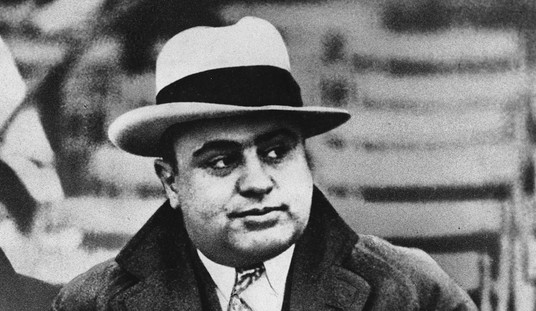Yesterday, I noted that Barack Obama seriously lied about the supposedly “frozen” pay at the White House, but as Jeff Dobbs notes, that wasn’t the only problem with that particular response during his Twitter town hall. The question that prompted Obama’s answer was a reference to changes in collective bargaining laws in several states this year, particularly in Wisconsin. Here is the exchange in its entirety, emphasis mine:
MR. DORSEY: I wanted to take a moment and point out the map just behind you. These are tweets coming in, in real time, and these are questions being asked right now. And it flips between the various categories that we’ve determined and also just general askObama questions.
So our next question is coming up on the screen now, from Patrick: “Mr. President, in several states we have seen people lose their collective bargaining rights. Do you have a plan to rectify this?”
THE PRESIDENT: The first thing I want to emphasize is that collective bargaining is the reason why the vast majority of Americans enjoy a minimum wage, enjoy weekends, enjoy overtime. So many things that we take for granted are because workers came together to bargain with their employers.
Now, we live in a very competitive society in the 21st century. And that means in the private sector, labor has to take management into account. If labor is making demands that make management broke and they can’t compete, then that doesn’t do anybody any good.
In the public sector, what is true is that some of the pension plans that have been in place and the health benefits that are in place are so out of proportion with what’s happening in the private sector that a lot of taxpayers start feeling resentful. They say, well, if I don’t have health care where I only have to pay $1 for prescription drugs, why is it that the person whose salary I’m paying has a better deal?
What this means is, is that all of us are going to have to make some adjustments. But the principle of collective bargaining, making sure that people can exercise their rights to be able to join together with other workers and to negotiate and kind of even the bargaining power on either side, that’s something that has to be protected. And we can make these adjustments in a way that are equitable but preserve people’s collective bargaining rights.
So, typically, the challenges against bargaining rights have been taking place at the state level. I don’t have direct control over that. But what I can do is to speak out forcefully for the principle that we can make these adjustments that are necessary during these difficult fiscal times, but do it in a way that preserves collective bargaining rights. And certainly at the federal level where I do have influence, I can make sure that we make these adjustments without affecting people’s collective bargaining rights.
I’ll give you just one example. We froze federal pay for federal workers for two years. Now, that wasn’t real popular, as you might imagine, among federal workers. On the other hand, we were able to do that precisely because we wanted to prevent layoffs and we wanted to make sure that we sent a signal that everybody is going to have to make some sacrifices, including federal workers.
By the way, people who work in the White House, they’ve had their pay frozen since I came in, our high-wage folks. So they haven’t had a raise in two and a half years, and that’s appropriate, because a lot of ordinary folks out there haven’t, either. In fact, they’ve seen their pay cut in some cases.
Yeah … what exactly are those collective bargaining rights that Obama pledges to protect? In fact, they’re practically non-existent — as Wisconsin Governor Scott Walker pointed out during the height of the controversy:
“Well, our proposal is less restrictive than the federal government is today,” Walker said. “Under Barack Obama, he presides over a federal government where most federal employees do not have collective bargaining for benefits, nor for pay. So what we’re asking for is something less restrictive than what the federal government has.”
Politifact rated Walker’s assertion as true:
Bottom line, negotiations over working conditions are important, and so Walker’s larger point — that he is asking for “something less restrictive than what the federal government has” — is debatable. But in saying that most federal workers don’t have collective bargaining rights to benefits and pay, though, Walker is accurate. Although there are some federal workers who have collective bargaining rights for benefits and pay, “most” do not. And so we rate his comment True.
In other words, it’s easy to keep from impacting collective bargaining “rights” when they don’t exist. Maybe President Obama should take the time to learn about an issue before “acting stupidly” by opining about it first.

Got an Obamateurism of the Day? If you see a foul-up by Barack Obama, e-mail it to me at [email protected] with the quote and the link to the Obamateurism. I’ll post the best Obamateurisms on a daily basis, depending on how many I receive. Include a link to your blog, and I’ll give some link love as well. And unlike Slate, I promise to end the feature when Barack Obama leaves office.
Illustrations by Chris Muir of Day by Day. Be sure to read the adventures of Sam, Zed, Damon, and Jan every day!








Join the conversation as a VIP Member